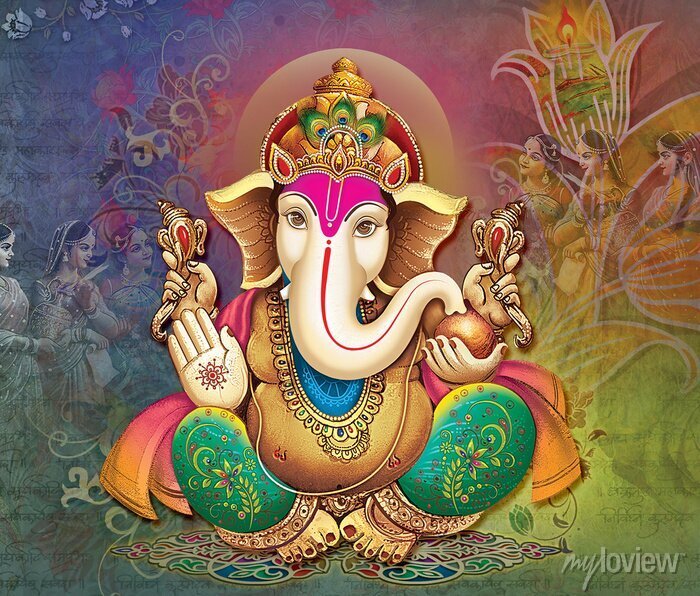Panchtatva in Astrology
In Vedic astrology, the Panchtatva is fundamental to understanding the energetic balance of the cosmos and how it influences human life:
Elemental Connection with Planets
- Each of the five elements is associated with specific planets that embody their qualities:
- Akasha (Space/Ether): Jupiter; Represents expansiveness, wisdom, spiritual growth, and higher consciousness.
- Vayu (Air): Saturn; Governs movement, intellect, discipline, and the breath of life.
- Agni (Fire): Mars and Sun; Represents energy, courage, transformation, vitality, and passion.
- Jal (Water): Moon and Venus; Governs emotions, intuition, relationships, and creativity.
- Prithvi (Earth): Mercury; Represents stability, practicality, and material abundance.
Role in Horoscopes
- The balance of the Panchtatva in a person’s horoscope (natal chart) determines their physical, mental, and emotional tendencies:
- Excess or deficiency of an element manifests in personality traits, health conditions, and life challenges.
- For example, an imbalance in Agni (fire) might cause aggression or digestive issues, while an imbalance in Jal (water) could lead to emotional instability.
Nakshatras and Elements
The 27 Nakshatras (lunar constellations) are also connected to the Panchtatva, influencing the temperament and behavior of individuals based on their birth star.
“Indian Vedic Astrology” is an ancient and profound system of knowledge rooted in the Vedas, the oldest sacred texts of India. Known as “Jyotish Shastra,” which translates to the “Science of Light,” Vedic astrology is believed to have been developed thousands of years ago by the sages of ancient India. It is more than just a means of predicting the future; it is a comprehensive system that provides insights into all aspects of life, including health, relationships, career, and spiritual growth.
Core Principles of Vedic Astrology:
Vedic astrology is based on the belief that the positions and movements of celestial bodies, such as planets and stars, have a profound influence on human life and the natural world. The core components of Vedic astrology include:
- Grahas (Planets): The nine planets, or “Navagrahas,” are central to Vedic astrology. These include the Sun (Surya), Moon (Chandra), Mars (Mangal), Mercury (Budh), Jupiter (Guru), Venus (Shukra), Saturn (Shani), Rahu, and Ketu. Each planet is associated with specific qualities, energies, and effects on human life.
- Rashis (Zodiac Signs): The zodiac is divided into 12 signs, each representing different characteristics and traits. The placement of planets in these signs at the time of an individual’s birth forms the basis of their birth chart or “Kundli.”
- Houses: The birth chart is divided into 12 houses, each representing different areas of life, such as self, wealth, communication, family, creativity, health, partnerships, and more. The placement of planets in these houses influences various aspects of an individual’s life.
- Nakshatras (Lunar Mansions): The 27 Nakshatras are specific star constellations that play a significant role in determining an individual’s nature and destiny. The Moon’s position in a particular Nakshatra at the time of birth is especially important in Vedic astrology.
- Dashas (Planetary Periods): Vedic astrology uses a system of planetary periods, known as Dashas, to predict the timing of events in a person’s life. Each Dasha is ruled by a different planet and has a distinct influence on an individual’s life during that period.
Significance in Life
Vedic astrology is considered a powerful tool for understanding the deeper meaning and purpose of life. Its significance lies in the following aspects:
- Self-Awareness: By analyzing an individual’s birth chart, Vedic astrology provides deep insights into their personality, strengths, weaknesses, and karmic patterns. This self-awareness helps individuals make informed decisions and align their actions with their true nature.
- Guidance in Decision-Making: Vedic astrology offers guidance in important areas of life such as career, relationships, health, and finances. By understanding the planetary influences, individuals can make better decisions and navigate challenges more effectively.
- Timing of Events: The Dasha system and planetary transits help astrologers predict the timing of significant life events, such as marriage, childbirth, career changes, and financial gains. This timing aspect allows individuals to take advantage of favorable periods and mitigate challenges during difficult times.
- Spiritual Growth: Vedic astrology is deeply connected to spirituality and the concept of karma. It provides a roadmap for spiritual growth by highlighting the lessons and challenges an individual is likely to face in their lifetime. By understanding and working with these karmic patterns, individuals can evolve spiritually.
- Remedial Measures: Vedic astrology also offers various remedies to balance negative planetary influences. These remedies may include chanting mantras, performing specific rituals, wearing gemstones, or following certain spiritual practices. These remedies aim to harmonize the individual’s energy with cosmic forces, promoting overall well-being.


